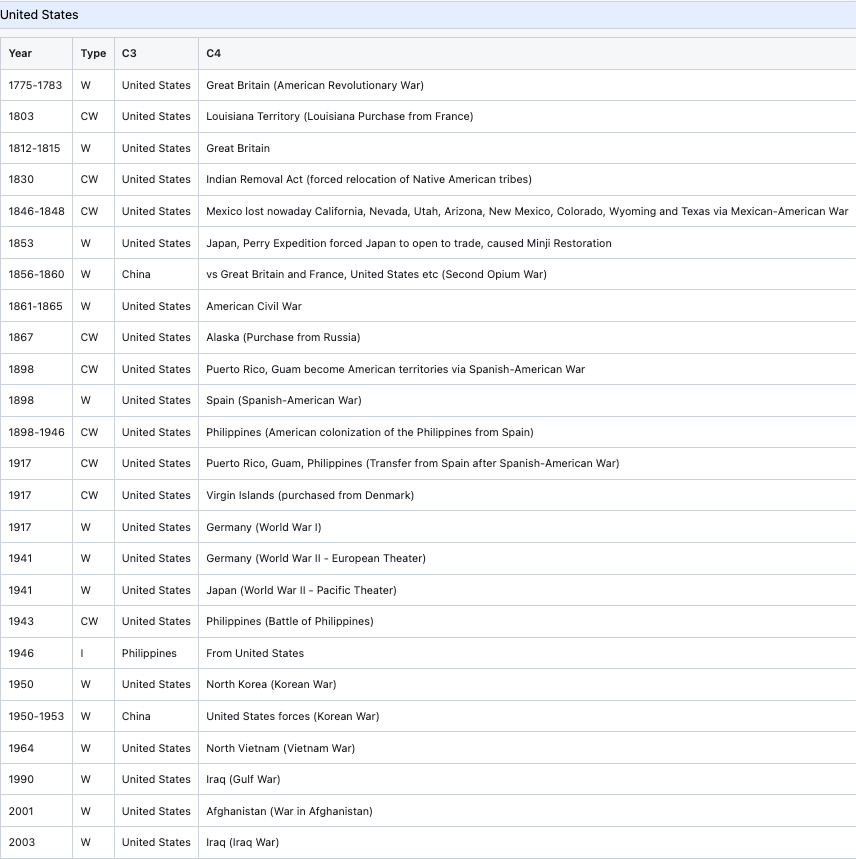Imperialism
It is no secret that China and the US are in competition. This is evident from the export control on advanced chip technology, the TikTok ban, and the recent 100% tariff on electric cars made in China.
Ostensibly, especially in the 21st century, state competition always cites rules, but in reality, it is about competing for power and survival.
Mearsheimer asserts that:
The international system is anarchic and there is no central authority to enforce rules. In such a system, states are compelled to seek dominance and maximize their relative power to survive1.
I hope it is otherwise, but it seems this is the case.
Of course, no one will tell the real motivation. It would be too foolish. You can call it hypocrisy. But politicians excel at diplomacy. You can hardly tell the difference between those two.
Comparing with the hypocrisy of the politition, ignorance and arrogance of the media annoys me more. Almost all the “news/reports” regarding China and Taiwan falls into this category. They just sell fear. Most if not all have never been to Taiwan or China, can’t read Chinese, know nothing about the history and the people. Arrogance and ignorance share some root, anyway.
A short history of American Imperism
One of the reasons cited to support a 100% tariff on China’s EVs is that China is dumping its overcapacity of electric cars. This takes me right back to 1900 when America was trying to find ways to export their overcapacity due to the advancement of the Industrial Revolution.
Imperialism: The policy, practice, or advocacy of extending the power and dominion of a nation especially by direct territorial acquisitions or by gaining indirect control over the political or economic life of other areas. - Merriam-Webster Dictionary
The technological advancements of the Industrial Revolution caused significant productivity growth and hence an increase in the production of goods. The American domestic markets were not sufficient to absorb the increased capacity, leading to a push for foreign markets, both in North America (under the ideology of Manifest Destiny) and in Asia (e.g., China, Japan, Philippines).
The ideology of Manifest Destiny, which held that the U.S. was destined to expand across North America, played a crucial role in justifying territorial expansion. This belief was used to rationalize the annexation of territories and exert influence over neighboring regions: the Louisiana Purchase (1803) , the Indian Removal Act (1830), and the Mexican-American War (1846-1848) which resulting in the possession of California, Nevada, Texas etc.
The Spanish-American War (1898)2 marked a significant turning point, leading to the U.S. acquiring territories beyond its continental borders and gaining control of Puerto Rico, Guam, and the Philippines. Meanwhile, in China, the U.S. pursued the Open Door Policy (1898), which aimed to ensure equal trading rights for all nations in China and to prevent any single power from monopolizing Chinese markets.
Compared to what America did during that time to export its overcapacity, whatever China did for their electric cars industry, seems very benign?
Thinking independently
America is one of the greatest countries that has ever existed. However, it doesn’t mean America is infallible. Far from it3. Apart from the two world wars in which America participated, which of the following wars are totally justified?

Thinking independently proven to be hard or not necessary for most people.